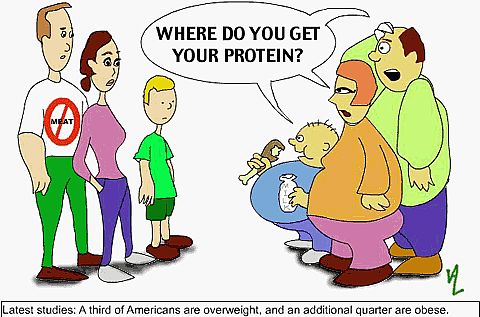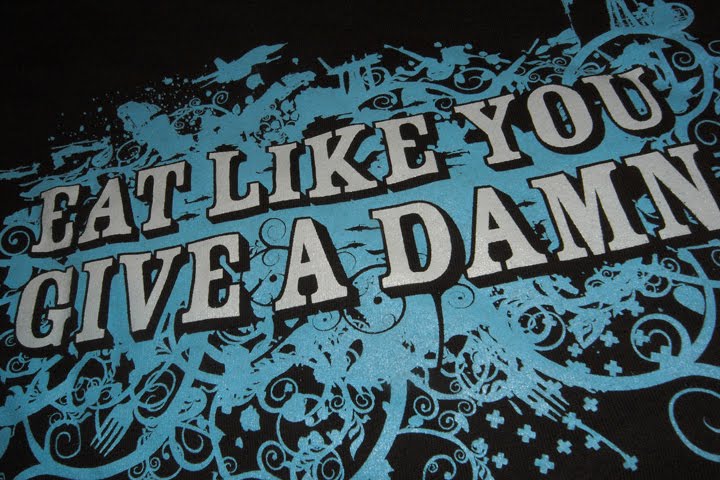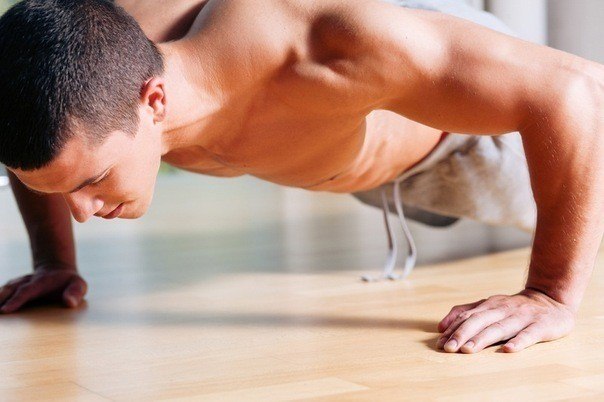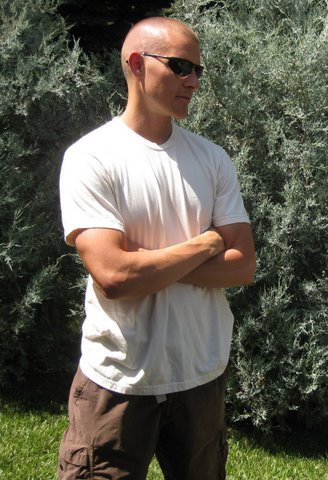Are vegetarians too skinny? Is there something to be said for this level of leanness? Are vegetarians just wasting away due to their food choices, on a collision course with anorexia and eventual death? Or is their leanness all part of some other plan?
++
Note from JB: Recently, in the PN Member Zone, an omnivorous bodybuilder went after PN Director of Education, Ryan Andrews, for being too skinny. In one particular quote, he said Ryan looks “sickly.” And he even went on to say that most of the Vegetarian/Plant Based Eaters he knows also share that same sickly look.
Indeed, many weight lifters and bodybuilders seem to share this feeling. Heck, many normal folks feel this way too. But is there something to be said for this level of leanness? Are Vegetarians just wasting away due to their food choices, on a collision course with anorexia and eventual death? Or is their leanness all part of some other plan?
In this post below, Ryan addresses his personal reasons for going from 255lb bodybuilder to 165lb plant based eater.
Sure, you might not make the same choice in your life. Heck, personally, I prefer carrying around more muscle mass than the average plant-based eater. Yet I do believe it’s worth exploring the whys of other people’s health choices before dismissing them as wrong, simply because they’re not part of my own world-view.
Lean? Skinny? I guess that’s me.
A few things happened recently that made me think about the size of my body.
- My annual weigh in at the doctor’s office was 165 pounds (I’m just over 6 feet tall).
- A woman at the gym asked if I am a cyclist.
- A friend from high school saw me and asked why I looked “deflated.”
Well, the truth is, I eat a 100% plant-based diet. (I’m a vegan). And, well, a lot of people in the fitness world think that plant-based eaters (PBEs) are too scrawny.
For the most part, I agree. Most PBEs I meet are thin. And while it’s usually frowned upon, I find it kind of fascinating. I mean, we live in a nation where 70% of us are overfat and we spend $140 billion per year treating obesity related diseases.
Yet “vegetarian thinness” is frowned upon?

Vegetarian thin?
After working with many plant based eaters — and having eaten plant-based myself for several years — I feel like I finally have a pretty good perspective on why they end up the way they do. Let’s look at example number one. Me. Here’s my body weight timeline:
Age 14: 165 pounds
Age 17: 205 pounds
Age 19: 255 pounds
Age 21: 185 pounds
Age 28 (current): 165 pounds
Dang! Am I all over the BMI charts due to Weight Watchers and yo-yo dieting? Not exactly. At my max, I was 255lbs of muscle-building obsession.

Back then, I was a really big, muscular guy:
- who couldn’t do many bodyweight pull-ups or dips
- who was always full of food
- who could never get comfortable
- who was winded after climbing one floor to his apartment
- who was lethargic because of digesting massive amounts of food all day
- who avoided things outside of gym and meal time, because going an extra 3 hours without food would make him catabolic and missing a chest workout would doom him to a life of weakness
- who couldn’t do a handstand, one legged squat, or any yoga poses
- who had trouble finding a t-shirt with the right proportions
- who woke up each day and didn’t really feel good
Nowadways, I’m 165lbs. That’s right, 90lbs less.
And now I’m a guy:
- who is the bodyweight exercise king
- who feels much lighter, since he’s not always full of food
- who can get comfortable anywhere, as long as it’s not below 60 degrees (I get cold easily)
- who can run up several flights of stairs in the airport and not worry about a massive heart explosion
- who has more energy, because he has less weight to carry around and isn’t digesting pounds of food all day
- who lives life outside of the gym and kitchen, because going an extra 3 hours without food isn’t a big deal and he stays physically active outside of gym time
- who can do handstands, one legged squats, and more yoga poses than he cares to admit
- who could probably buy a t-shirt in the “boys” section
- who wakes up each day and can’t believe it’s possible to feel this good
Uh, while some folks see my weight reduction as “deflation,” it should be obvious that I’m completely stoked about the new me!
How did I get this way?
So, I lost 90lbs and feel much better. But how did the 90lb weight loss happen? Is it simply because I’m eating only plants. Did I drop 90 pounds because I’m not eating enough animal fat? Did I drop 90 pounds because I’m not getting enough animal protein? Did I drop 90 pounds because I’m not getting enough animal cholesterol?
Sure, these things have some impact on health and weight loss. But the truth is closer to this. I’m 90lbs less because I don’t eat much food — and that’s my choice. I choose to eat between 2000 and 2200 kcal per day. I’m 90lbs less because I stay very active with weights, circuit training, and good ol’ fashioned walks. And, truthfully, I’m 90lbs less because my eating incentives extend far beyond looking buff in a tight t-shirt.
Across the board, many vegetarian/plant based eaters aren’t lean because they’re dieting. They’re lean because they:
- don’t want to use more resources than required
- don’t want to create more waste than is necessary
- don’t want to spend as much money on food
- get full after eating a whole food, plant-based, high fiber diet
- expend more energy biking, walking, etc. because they’re concerned with driving less and using less fossil fuel
- aren’t training “balls to the wall” at the gym with heavy weights
New motivations
From age 14 to 20, I was a competitive bodybuilder concerned with how eating influenced my body and performance. But then, after I hung up my posting trunks, my eating incentives evolved. I started thinking about how my eating actually influences…gulp…the planet and my health.
Here were my thoughts toward eating during bodybuilding:
- How will this food influence my body fat & muscle mass?
- How will this food influence my chances of winning a contest?
Immediately after I stopped competing, my priorities shifted to:
- How will this food influence my chances of developing heart disease?
- How will this food influence my chances of developing cancer?
- How will this food influence my body fat?
Nowadays (and for the past several years), I’ve had another set of considerations:
- How will this food influence animals?
- How will this food influence the environment?
- How will this food influence farming?
- How will this food influence world hunger?
- How will this food influence human rights?
- How will this food influence chronic disease?
- How will this food influence my body (physically, spiritually, etc)?
- Why the hell am I thinking about so many issues before I eat?
I’m not saying these are the right motivations. What I am saying is that they’re mine. And they also describe the motivations of many plant-based eaters.

Incentives – positive and negative
Talking incentives makes me think about people who have difficulty eating healthy. I wonder if lack of motivation to eat healthy has to do with dismal incentives.
Consider:
- How many people stick with eating healthy when they want to look fit for the class reunion in a few weeks…
- How many people stick with eating healthy when they want to lower their cholesterol because their doctor scared them…
- How many people stick with eating healthy because they read in a magazine that carbs are bad…
Ummm, not many.
If we really want to make a life change, do our eating incentives need to be more meaningful?
Personally, I can’t imagine eating for the sole purpose of looking leaner and muscular. At one time it was a very powerful motivator for me. But now, no way. Being lean and muscular is still on my list of incentives, for sure. But it’s not in the top 10.
Even Dr. Berardi, my good friend and confirmed omnivore, has talked about his evolving motivation for eating and exercising. In this interview he mentions:
“When I was younger and my focus was physique competition, my #1 priority was being big, strong and ripped.
However, once I put my bodybuilding days behind me, my focus changed. My goal was no longer exclusively aesthetics. And as I had other priorities in life (school – later work, new hobbies, relationships, etc) I needed to find a new balance.
Now, I’m not going to lie. I’m still very interested in looking good. And that’s definitely a priority for me. However, before size and cuts comes health and function.
The all-out pursuit of being bigger and stronger — which had great rewards but was costly as I always had to be near a fridge and was always wiped out from training — has been replaced by having fun in and out of the gym and by trying to find the balance between my hobbies, my occupation, my training, and my relationships. And this balance requires that I don’t sacrifice all at the altar of my training and eating.”
Lessons for you
Ok, ok. These are just my experiences. So what can you take outta this article?
Lesson #1
I’m lean because I live the life of a lean person. I don’t eat much food and I do expend lots of energy. If you don’t want to look like me, that’s cool. However, adding a bit more muscle is easy to do with a few more calories and a change in workout program.
Lesson #2
I’m motivated by mindful eating, eating with a sense of purpose and meaning. For me, the daily motivation stems from an overall awareness of the planet and resources.
What if we could all shift our eating choices to a higher standard of social norms? You don’t have to share mine. But if you want to be lean and healthy for life, you need to have some standard. You need to create new social norms. After all, we take social norms seriously. Examples of social norms (socially enforced rules):
- Helping your buddy move
- Holding the door open for someone
- Volunteering your time
We do them willingly, not expecting immediate payback. They can be powerful motivators. Even more powerful than looking lean for the wedding reception.
Lesson #3
Our decision making is based on our incentives. Are there right or wrong eating incentives? I don’t think so. But there are more and less desirable outcomes. And the outcome is based on the incentive.
So, ask yourself, what are your eating incentives? And if you don’t have the body you want, maybe your incentives need an overhaul.
As far as mine, well, I’ve gotta run. I’ve got a date with a circuit workout and I can’t be late.

Eat, move, and live… better.©
The health and fitness world can sometimes be a confusing place. But it doesn’t have to be.
Let us help you make sense of it all with this free special report.
In it you’ll learn the best eating, exercise, and lifestyle strategies — unique and personal — for you.





Share